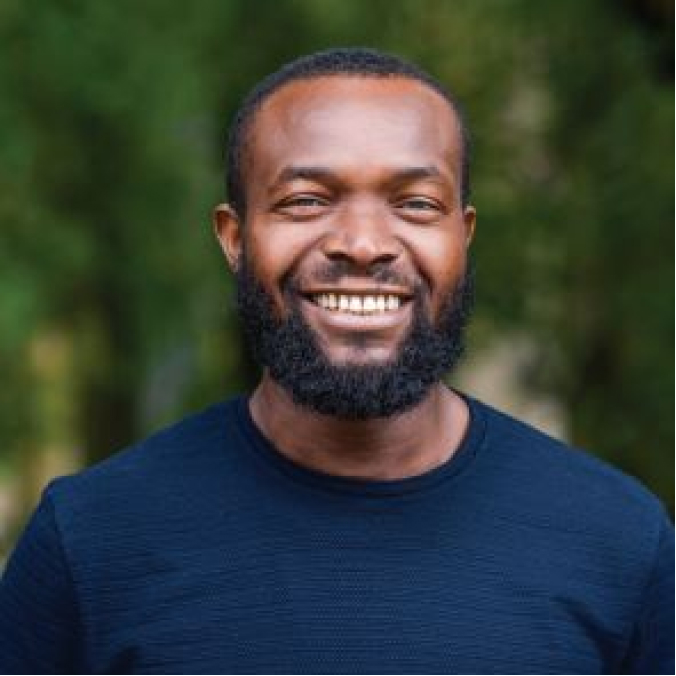Next Einstein Forum: Tell us in a few words what CcHUB is and the impact it has had on Africa?
Bosun Tijani: CcHUB stands at the forefront of the fastest moving technology industry trends and is maintaining its focus on shaping the economy and the future of Africa. It is championing the growth of start-up communities whose savvy models are in turn motivating partners globally to embrace the technology revolution sweeping across Africa. In a few years, we have built a solid reputation for process and product innovation, business development strategies, incubation of new business models and rolling out channel programs. Our success and partnerships culminated in the visit of Mark Zuckerberg to the Hub on his first-ever visit to Sub-Saharan Africa. We pitched the concept of the i-HQ and secured the installation of fibre optic cables in the Yaba area as well as long term investment and support from both the private sector and the government.
Tell us about the initiative you started last year to connect ecosystems leveraging or preparing for the AfCFTA?
B.T.: The key message is around the concept of distributed innovation systems, which I have been working on for a while now. As we continue to think of how we strengthen ourselves locally, as African countries, we need to understand that the world is moving so fast, and we do not have time to build a strong innovation system. When we start to think about what “distributed” means, how a company in Rwanda can partner with those in Nigeria, Kenya, and Uganda to leverage each other’s strengths where they are weak, that is how we will push Africa forward. The starting point is—we must start to see the continent as a single market which is perfect timing for the AfCFTA. But beyond that, it gives us the chance to be more integrated and intentional about our relationship with the rest of the world. So if an African country is partnering with China, what’s the relationship based on? It shouldn’t just be China giving resources to build roads. It should be how that relationship strengthens that country or what it offers China, such that it is a symbiotic relationship where they benefit, we benefit, and we get stronger. For instance, when we partner with the UK, it shouldn’t be just about aid; it should be about what we are learning from that relationship, how the relationship is strengthening us, and helping us be more formidable. That distributed way of thinking is essential: to say we are strong here, you are strong there, we are weak here, we can complement you, you can support us to make us stronger. That’s the message I am hoping to pass across under AfCFTA.
You are a veteran entrepreneur. Talk to us about what you would tell your younger self about how to build a business and especially how to scale?
B.T.: When you’re weak, you’re weak, and you can’t compete. The mindset for us, which has always been our mindset for the last 10 years, is to have innovation become mainstream on the continent. We want every business person, leader, government official to understand that the application of science and technology will change the way we do things. Our long term vision has always been to see that day when innovation becomes the status quo. When we think of solving problems in education, we think innovation; when we think of solving problems in agriculture, we think innovation. Innovation must be at the core of anything we think of. If you are thinking of building a business in innovation, ask yourself: how do you democratize the application of science and technology, which is the core of innovation? That’s where technical efficiency in the innovation business comes from. Everything you do should be about building that ecosystem, getting more people to believe, making innovation more accessible, making it more meaningful not just for startups but large corporates as well, disrupting the market. You’ve got to figure out how to help businesses that have been there for 10 to 20, 30 years to also leverage technical efficiency powerfully and innovate so that they continue to add value to society.
Do you think scientists should have mandatory creative thinking, management and entrepreneurship courses? What is the value of this?
B.T.: Every innovator must aim to be a manager too. There is one notion that I have narrowed down to: “Bringing anti-fragility” into how you work, into how you create. Generally, if you look at life, people tell us there is a description for fragile things. Thus, easily destructible things, but there is also a definition for formidable things, things that you can’t break easily. There is no way to describe something that is in-between. You can describe something strong and something weak. How do you describe something that’s in the middle? When you are powerful, there is a chance that you can be killed. It’s the same thing in business. You can be disrupted when you are really strong. When you are weak, forget it. Every scientist, innovator should creatively consider building an organization that is not fragile but constantly moving forward—but not to the stage where it is too strong, and there is nowhere to go. That’s the concept of bringing “anti-fragility” into our institutions. We must constantly innovate to stay relevant, and that’s where these courses you mention are vital.

